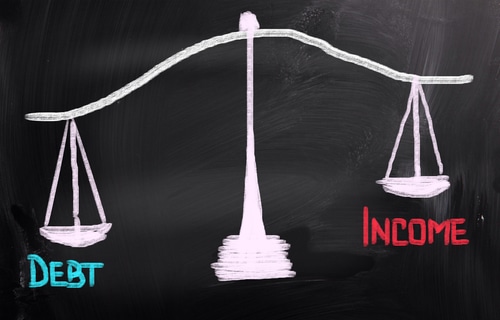A 401k is there for retirement, but it is also there when a consumer has a financial pinch that needs relieving.
According to 2013 data pulled from the Employee Benefit Research Institute, 21 percent of those employees eligible to withdraw or take a loan from their retirement account does so.
Although many people have the option to withdraw money from the 401k, is it the right decision to do so? Sure, you might fix your present problems, but it might end up costing you much more in the long run. So, how do you figure out if you should do it or not? The best way is to weigh up the options, then compare the pros and cons. To help you in that decision, we’ve highlighted how with drawing from your 401k could benefit you and how it could harm you.
 The average loan balance was approximately 12 percent of the retirement assets, and those that were in their 20s had balances coming in closer to 26 percent of their total plan savings.
The average loan balance was approximately 12 percent of the retirement assets, and those that were in their 20s had balances coming in closer to 26 percent of their total plan savings.
Withdrawing from 401k for house purchasing seems like a good idea, after all, the money is there. However, a consumer should consider the pros and cons of doing so before making such a quick judgment. You can be wondering “can I use my 401k to buy a house?” The answer is key, and this guide has you covered.
The Cons of Using a 401k to Buy a House
1. No More Savings for Retirement
 When a loan is out on the retirement account, the plan is likely to have a provision that does not allow them to make contributions until the loan is repaid. That means they are not saving or earning anything on that retirement account.
When a loan is out on the retirement account, the plan is likely to have a provision that does not allow them to make contributions until the loan is repaid. That means they are not saving or earning anything on that retirement account.
2. Loss of Money
When contributions are not made, because they are going toward a loan payment, the balance misses growth opportunities when the stock market improves. Also, future contributions are not made, so the retirement account stays stagnant until payments resume.
3. Tax Risks
If the consumer defaults on repaying their 401k loan, then it will be treated as an early withdrawal from the retirement account, and this is taxable by the state as well as the Internal Revenue Service. According to the Internal Revenue Service, this amount will be 10 percent if the withdrawal was prior to the 59.5 cut off age.
4. Stuck in a Job
When a consumer takes a loan out against their 401k for a down payment or the balance of their new home loan, they may be forced to stay at that job. If they were to quit or leave the job, they could be required to pay back the outstanding balance in as little as 90 days, says Money Crashers. Otherwise, the consumer will be targeted with a hardship withdrawal from the IRS.
The Pros to Borrowing from 401k for a House
1. Doesn’t Contribute to Debt-to-Income Ratio
 Per Kiplinger, a 401k loan does not count in a DTI ratio when a consumer applies for a mortgage. That is because the loan is secured by their 401k plan; therefore, it is not the same type of credit issued to a consumer. 401k loans are also not reported to the credit bureau; therefore, the loan will not harm a consumer’s credit score either. Thus, if you borrow from 401k for a house, the benefits might pay off.
Per Kiplinger, a 401k loan does not count in a DTI ratio when a consumer applies for a mortgage. That is because the loan is secured by their 401k plan; therefore, it is not the same type of credit issued to a consumer. 401k loans are also not reported to the credit bureau; therefore, the loan will not harm a consumer’s credit score either. Thus, if you borrow from 401k for a house, the benefits might pay off.
2. Pay Interest to Yourself
One of the biggest benefits for a consumer is that they are paying interest on a loan, but the interest goes straight back to their retirement account. Depending on the interest rate, they could earn a valuable return. However, that return is nowhere near what they would have received not touching the money early.
3. Low-Cost Loan
Compared to other means of getting a sizeable down payment or new home loan, a 401k loan is affordable for interest rates, especially for consumers who have poor credit history or a poor credit score. With the higher interest rates increasing payments dramatically, it could make financial sense to go with a 401k loan instead.
4. Longer Loan Terms
When a person withdrawals from their 401k to purchase a home, they will receive a longer loan term than if they were making another type of personal withdrawal. The amount of years will vary, but some employers could give as much as 15 years on a repayment.
5. Easier Loan Approval
A loan from a 401k plan is simple. There are no credit checks, no underwriting, and credit history or debt-to-income ratios are not an issue, says Investopedia. Instead, the employee files the paperwork and receives a check in just a few days. It is the simplest way to be approved for a home loan or a down payment loan.
From the information above, you’ve got a pretty good idea of what to expect if you take either route. It might seem like whichever option you choose, you might make a mistake. Keep in mind that what helps you out immediately could hurt you in the long run. At the end of the day, the decision is yours to make.
Bottom line, a consumer should consider the costs and long-term consequences of using 401k to buy a house.
Keywords: